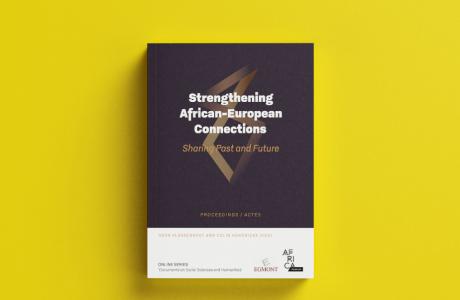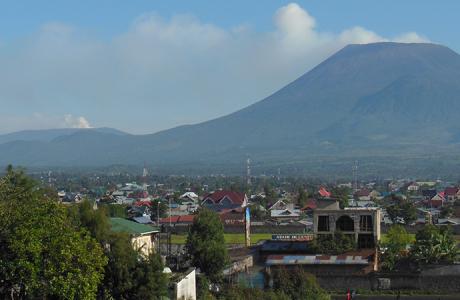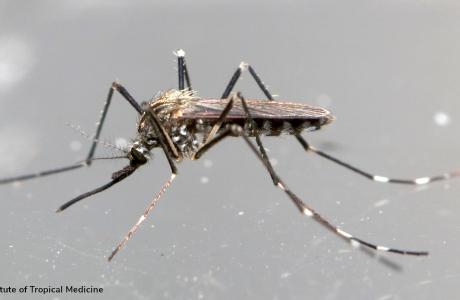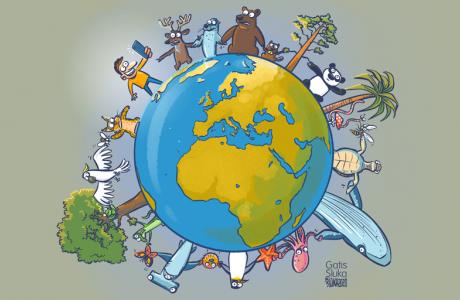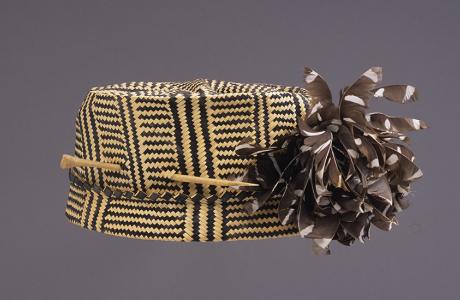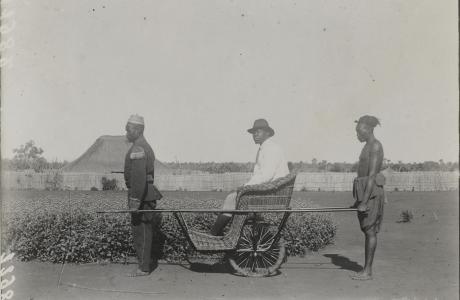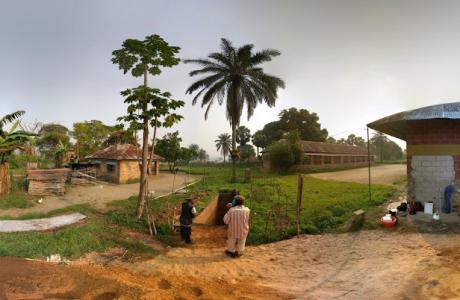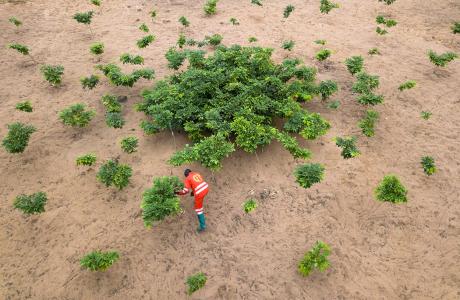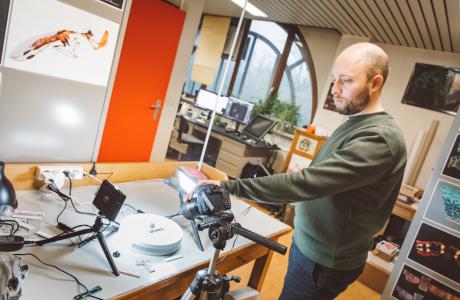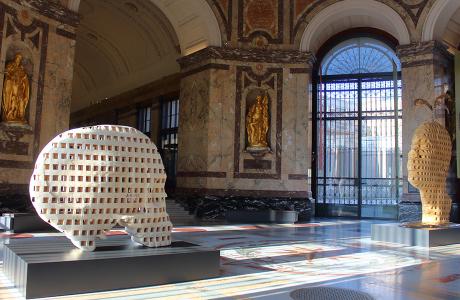Science news
- May 2021
In conjunction with the reopening of the museum in 2018, the Royal Museum for Central Africa (RMCA) and the Egmont-Royal Institute for International Relations organised the conference Sharing Past and Future: Strengthening African-European Connections. The aim of the conference was to look back at the past and rethink future relations between Africans and Europeans. The proceedings of this conference are now available in open access.
- May 2021
On 22 May 2021, the Nyiragongo volcano in eastern DR Congo erupted. Lava flows reached villages on the outskirts of Goma. Days later, even though the lava flows stopped progressing ten to twelve hours after the eruption onset, the situation is still worrying with an intense seismic activity. The AfricaMuseum collaborates with the Goma Volcano Observatory for the monitoring of the volcanic and seismic activity. The museum also published a page with the latest developments regarding the eruption.
This collaboration has been going on for a long time. In 2005, the Royal Museum for Central Africa and the Goma Volcano Observatory started working together to better understand and assess the volcanic risks directly threatening Goma’s one million inhabitants.
- April 2021
The Asian bush mosquito is a widespread invasive species in many European countries. In Belgium, three populations have been detected: one in Natoye (Namur province) and two along the German border. An international team of researchers reveals in a new study published in Parasites & Vectors that these populations are the result of multiple introductions of various origins. This study will help optimise efforts to control this potentially pathogen-carrying invasive species.
- April 2021
The Royal Museum for Central Africa has joined 200 other world institutions in an international campaign to raise awareness of the need to protect our natural environment, ahead of the Conference of the Parties (CoP) 15 meeting of the Convention on Biological Diversity in 2021.
- March 2021
The debate about restitution of African heritage has recently received broad political and public attention. However, the debate mostly involves actors in Europe. What do Africans in Africa think about the issue? The debate so far shows little concern for their wishes and priorities.
- February 2021
Anthropologist Hannelore Vandenbergen is investigating the Hutereau collection, from the perspective of the Congolese chief Maroka. This collection was collected by a Belgian expedition leader in Belgian Congo for the Tervuren museum. The aim is to shed new light on early twentieth-century colonial collecting practices.
Prolonged disease epidemic possibly caused population collapse in Central Africa 1600-1400 years ago
February 2021A new study published in the journal Science Advances shows that Bantu-speaking communities in the Congo rainforest underwent a major population collapse from 1600 to 1400 years ago, probably due to a prolonged disease epidemic, and that significant resettlement did not restart until around 1000 years ago. These findings revise the population history of no less than seven present-day African countries and challenge the commonly held belief that the settlement of Central Africa by Bantu-speaking communities was a continuous process from about 4000 years ago until the start of the transatlantic slave trade.
- February 2021
Afrormosia is among the most exploited timber species from the Congolese rainforest. However, as the trees suffer from regeneration problems, overexploitation may jeopardise the survival of the species. To develop a more sustainable management, researchers are trying to understand the tree's growth pattern through experimental plantations.
- January 2021
The new Virtual Access programme aims to digitise the natural history collections of many European museums. The aim is to digitise, as a priority, those collections for which there is a high demand within the scientific community. The Royal Museum for Central Africa is participating in two projects. The first is to digitise some 2,400 aquatic insects in support of environmental research. The second focuses on bat collections, to provide data in the fight against coronaviruses.
- December 2020
In collaboration with six other museums and universities, the RMCA launched the HOME project to thoroughly evaluate the historical, scientific, and ethical background of human remains in Belgian collections. The aim is to inform policy and stakeholders about their possible final destinations.
